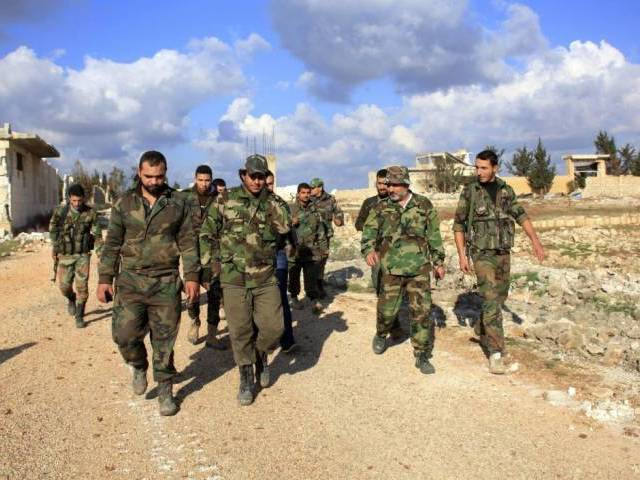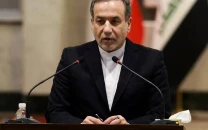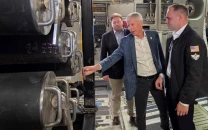Syria army says it holds fifth of key desert territory
The army had thus completed the "first phase" of its Badiya operations

The army had thus completed the "first phase" of its Badiya operations. PHOTO: REUTERS
The desert, known as the "Badiya", extends over some 90,000 square kilometres (35,000 square miles) from central Syria to the borders with Iraq and Jordan to the east and southeast.
Since 2015, much of the Badiya has been held by the Islamic State (IS) jihadist group, but Syria's army has been chipping away at it for months.
On Friday, they reached the country's eastern frontier with Iraq for the first time in two years.
"In cooperation with our allies, our units have captured a large number of locations and strategic positions in the Badiya, amounting to an area of 20,000 square kilometres," the general command of the army said on Saturday.
"This important achievement represents a strategic shift in the fight against terrorism and a launching pad to broaden military operations in the Badiya and along the borders with Iraq," said the statement, distributed on state media.
Iran says attackers had been in Iraq, Syria for IS
The army had thus completed the "first phase" of its Badiya operations, the statement said.
State news agency SANA had reported on Friday that army units set up positions northeast of the At-Tanaf garrison, currently used by the US-led coalition bombing IS to train Syrian rebels to fight the militants.
The coalition has established a "de-confliction" zone extending 55 kilometres (34 miles) from the garrison, in which pro-regime and allied Russian forces are not supposed to operate.
The US-led alliance has in recent weeks conducted three strikes against pro-regime forces it deemed to be threatening At-Tanaf.
Iran says attackers had been in Iraq, Syria for IS
On Thursday, a US jet shot down a pro-regime combat drone that fired what turned out to be a dud bomb at US-led coalition forces close to At-Tanaf.
Syria's army on Saturday accused the coalition of carrying out the bombing raids in an attempt to slow the regime's fight against IS.
"We once again warn of the dangers of repeated attacks by the so-called international coalition and its attempts to obstruct the advances of the Syrian army and its allies," the command said.
Syria's conflict erupted in March 2011 with protests against the rule of President Bashar al-Assad.
It has since evolved into a complex, multi-front war that has drawn in international powers and left more than 320,000 people dead.


















COMMENTS
Comments are moderated and generally will be posted if they are on-topic and not abusive.
For more information, please see our Comments FAQ